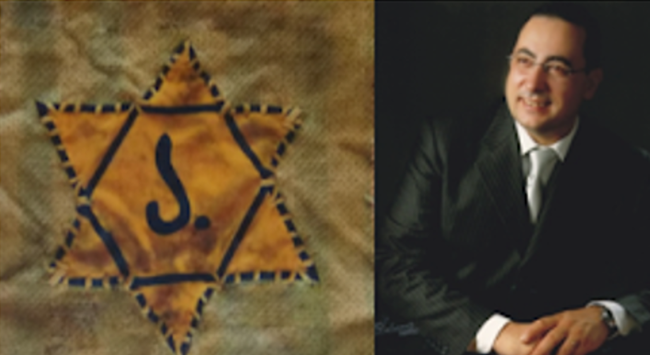Intervista di Maria Teresa De Donato
 Oggi sono felice di ospitare nuovamente l’amico e collega autore Aldo Villagrossi Crotti, Scrittore e Poeta, che ho avuto l’onore di intervistare qualche tempo fa.
Oggi sono felice di ospitare nuovamente l’amico e collega autore Aldo Villagrossi Crotti, Scrittore e Poeta, che ho avuto l’onore di intervistare qualche tempo fa.
Aldo è una persona colta, estroversa e poliedrica, impegnata in varie attività non solo culturali e che ha una veduta del mondo e di tutto ciò che è in esso a 360̊, oltre ad una profondità di pensiero ed un affilato senso dell’umorismo come pochi.
Come avevo già menzionato a suo tempo, Aldo mi fa pensare – avendolo conosciuto ed avendo letto alcuni suoi scritti – ad Albert Einstein e a Woody Allen. Il che non è poco.
Detto questo, vediamo oggi quante e quali sorprese ci riserva.
L’IDEA MAGAZINE: Ciao Aldo. Felice di averti qui e grazie per esserti preso il tempo anche per questa intervista.
Aldo Villagrossi Crotti: Ciao Teresa, grazie per avermi concesso una seconda chance!
L’IDEA MAGAZINE: La nostra precedente intervista l’avevo intitolata ‘Ascolta questo fiume’ prendendo spunto proprio da uno dei tuoi lavori. Vorresti riassumere, per i lettori che non avessero avuto modo di leggerlo o non ricordassero il nostro precedente articolo, le pubblicazioni che hai scritto fino al 2019, titoli, contenuti e circostanze?
Aldo Villagrossi Crotti: Sicuramente, ho iniziato con una pubblicazione giovanile, nei primi anni ’90. Era una raccolta di racconti brevi e poesie che intitolai “Appunti, per l’appunto”. Stampata in proprio, ma nel vero senso della parola: approfittai della fotocopiatrice di un amico, della graffettatrice di un altro, e stampai circa 200 copie. Le distribuii tutte durante una mostra d’arte collettiva. Non sentivo il bisogno di pubblicare un libro, lo feci perché mi sembrava originale unire racconti brevi e poesie in un libretto autoprodotto e distribuirlo come istallazione artistica. La cosa ebbe un certo successo, non perché vennero distribuite tutte (erano gratuite) ma per il fatto che ebbi dei feedback interessanti. La cosa che mi stupì di più fu che molti di quelli che lessero il mio libro riuscirono a cogliere il significato più profondo di quello che avevo scritto. La cosa mi aveva spaventato un po’, ti dico la verità. Avevo scoperto di essere decodificabile. Persino una delle poesie che avevo scritto, una sorta di cross-poem che incrociava un testo di Jimi Hendrix con una mia interpretazione, era a mio avviso piuttosto ermetica, anche se gradevole nella metrica. Arrivò un tizio a farmi i complimenti per quella poesia, descrivendomi esattamente lo stato d’animo in cui mi trovavo quando l’avevo scritta. Da quel momento in avanti cominciai a pensare che scrivere è un po’ come maneggiare un’arma: bisogna fare attenzione. Tolta la tesi di laurea e qualche pubblicazione di carattere tecnico, la mia produzione editoriale, seppur continuassi a scrivere quasi incessantemente, subì una pausa di circa 10 anni. Nel dicembre del 2008 io e mio padre scoprimmo di essere stati coinvolti inconsapevolmente, all’inizio degli anni ’70, in una complicata spy-story internazionale.
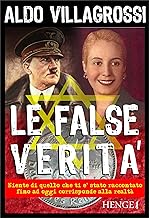 Dalla ricostruzione (difficilissima) di quell’evento scaturirono due libri, un primo libro nel 2012, “Le false Verità” ed un secondo libro, molto più dettagliato e carico di riferimenti documentali, edito nel 2019 “Quindici ipotesi logiche sul caso Evita Peron”. Subito dopo, per una serie di coincidenze, scoprii un libro che parlava di una storia legata alla deportazione di una donna ebrea dal ghetto di Sighet, nell’allora territorio rumeno annesso all’Ungheria. Questa donna aveva conosciuto uno dei miei zii, e per tre pagine lo aveva descritto. Decisi di tradurre le tre pagine del libro e di mandarle a mio padre, per conferma. Alla fine, tradussi tutto il libro, e lo mandai ad una importante casa editrice italiana, francamente senza tante speranze che potesse essere pubblicato. Questi mi risposero dopo una settimana con una email che diceva: “Bellissimo. Lo pubblichiamo.”
Dalla ricostruzione (difficilissima) di quell’evento scaturirono due libri, un primo libro nel 2012, “Le false Verità” ed un secondo libro, molto più dettagliato e carico di riferimenti documentali, edito nel 2019 “Quindici ipotesi logiche sul caso Evita Peron”. Subito dopo, per una serie di coincidenze, scoprii un libro che parlava di una storia legata alla deportazione di una donna ebrea dal ghetto di Sighet, nell’allora territorio rumeno annesso all’Ungheria. Questa donna aveva conosciuto uno dei miei zii, e per tre pagine lo aveva descritto. Decisi di tradurre le tre pagine del libro e di mandarle a mio padre, per conferma. Alla fine, tradussi tutto il libro, e lo mandai ad una importante casa editrice italiana, francamente senza tante speranze che potesse essere pubblicato. Questi mi risposero dopo una settimana con una email che diceva: “Bellissimo. Lo pubblichiamo.”
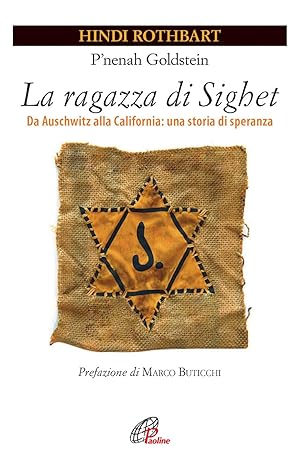 Nasce così “La Ragazza di Sighet”, un libro che negli USA passò immeritatamente inosservato, ma che in Italia guadagnò nel 2013 il titolo di “Libro del giorno della memoria”. Una grandissima soddisfazione. Nel frattempo, avevo riempito il cassetto di mie poesie. Come succede spesso, quando rileggi quello che hai scritto ne butti il 90%. Così feci, ma il 10% rimanente era così interessante che decisi di condividerlo con alcuni amici appartenenti alla cerchia poetica americana e sudamericana. La cosa fu apprezzata (sempre nel mio più completo stupore) al punto tale che mi fu chiesta una partecipazione a quella che oggi è “L’enciclopedia poetica dei cinque continenti”, pubblicata inizialmente in Colombia e in Argentina e oggi presente un po’ in tutto il mondo.
Nasce così “La Ragazza di Sighet”, un libro che negli USA passò immeritatamente inosservato, ma che in Italia guadagnò nel 2013 il titolo di “Libro del giorno della memoria”. Una grandissima soddisfazione. Nel frattempo, avevo riempito il cassetto di mie poesie. Come succede spesso, quando rileggi quello che hai scritto ne butti il 90%. Così feci, ma il 10% rimanente era così interessante che decisi di condividerlo con alcuni amici appartenenti alla cerchia poetica americana e sudamericana. La cosa fu apprezzata (sempre nel mio più completo stupore) al punto tale che mi fu chiesta una partecipazione a quella che oggi è “L’enciclopedia poetica dei cinque continenti”, pubblicata inizialmente in Colombia e in Argentina e oggi presente un po’ in tutto il mondo.
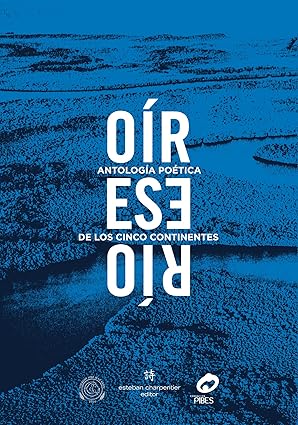 La prima edizione si chiamava “Oir Ese Rio”, cioè “Ascolta questo fiume”, ed aveva una precisa funzione, che era quella di sensibilizzare, attraverso la poesia, i popoli del mondo nei confronti dell’inquinamento dei corsi fluviali. Oir Ese Rio uscì nelle librerie, e a distanza di qualche mese mi arrivò una richiesta di contatto su Facebook da parte di una persona che risiedeva in Colombia. Pensai ad un errore, ma accettai. Dopo qualche ora questa persona mi mandò un filmato dove una studentessa liceale colombiana leggeva la mia poesia, quella pubblicata in “Oir Ese Rio”. Poi arrivarono altri contatti, uno dietro l’altro. Dalla Colombia, dal Venezuela, dall’Argentina, dal Cile, e così via. Gente che comprava il libro e aveva letto la mia poesia. L’avevano gradita al punto tale che volevano saperne molto di più su di me. Avevano il piacere di conoscermi. Seppi che la poesia a quelle latitudini è molto più importante di quello che non sia dalle nostre parti. Iniziarono a chiedermi altre poesie, e la cosa iniziava ad essere una costante della mia vita. L’anno scorso arrivò la richiesta di partecipazione alla seconda edizione dell’Enciclopedia Poetica dei Cinque Continenti, questa volta dedicata alla vegetazione, “Arbolarium”. La richiesta al sottoscritto da parte dell’editore stavolta era un po’ più sostanziosa: non voleva che scrivessi solo una poesia, ma mi chiese la prefazione del volume. In questo momento stiamo preparando il terzo volume dell’Enciclopedia, questa volta interamente dedicata al Vento. Voglio ricordare che tutti i proventi provenienti dalla vendita di questa Enciclopedia sono stati devoluti all’associazione “Pibes”, una fondazione Argentina che realizza opere legate al miglioramento delle condizioni di vita dei bambini delle popolazioni indie nella foresta pluviale nel Nord dell’Argentina.
La prima edizione si chiamava “Oir Ese Rio”, cioè “Ascolta questo fiume”, ed aveva una precisa funzione, che era quella di sensibilizzare, attraverso la poesia, i popoli del mondo nei confronti dell’inquinamento dei corsi fluviali. Oir Ese Rio uscì nelle librerie, e a distanza di qualche mese mi arrivò una richiesta di contatto su Facebook da parte di una persona che risiedeva in Colombia. Pensai ad un errore, ma accettai. Dopo qualche ora questa persona mi mandò un filmato dove una studentessa liceale colombiana leggeva la mia poesia, quella pubblicata in “Oir Ese Rio”. Poi arrivarono altri contatti, uno dietro l’altro. Dalla Colombia, dal Venezuela, dall’Argentina, dal Cile, e così via. Gente che comprava il libro e aveva letto la mia poesia. L’avevano gradita al punto tale che volevano saperne molto di più su di me. Avevano il piacere di conoscermi. Seppi che la poesia a quelle latitudini è molto più importante di quello che non sia dalle nostre parti. Iniziarono a chiedermi altre poesie, e la cosa iniziava ad essere una costante della mia vita. L’anno scorso arrivò la richiesta di partecipazione alla seconda edizione dell’Enciclopedia Poetica dei Cinque Continenti, questa volta dedicata alla vegetazione, “Arbolarium”. La richiesta al sottoscritto da parte dell’editore stavolta era un po’ più sostanziosa: non voleva che scrivessi solo una poesia, ma mi chiese la prefazione del volume. In questo momento stiamo preparando il terzo volume dell’Enciclopedia, questa volta interamente dedicata al Vento. Voglio ricordare che tutti i proventi provenienti dalla vendita di questa Enciclopedia sono stati devoluti all’associazione “Pibes”, una fondazione Argentina che realizza opere legate al miglioramento delle condizioni di vita dei bambini delle popolazioni indie nella foresta pluviale nel Nord dell’Argentina.
L’IDEA MAGAZINE: Complimenti vivissimi! Ricordo che nel 2019 hai partecipato anche ad alcune trasmissioni radiofoniche di un’emittente argentina. Vorresti parlarci di questa tua esperienza?
Aldo Villagrossi Crotti: L’editore dell’Enciclopedia Poetica dei Cinque Continenti, il poeta argentino Esteban Charpentier, da più di 20 anni conduce una trasmissione radiofonica interamente dedicata alla poesia, la trasmissione “Denserio”. Inevitabilmente fui coinvolto in una di queste trasmissioni, inizialmente come ospite e poi come presenza pressoché continua.
 L’IDEA MAGAZINE: Nella precedente intervista erano emersi degli aspetti molto interessanti cui, tuttavia, per ragioni di tempo e spazio avevamo solo accennato e che in questa occasione mi piacerebbe invece approfondire. Vorrei iniziare con una tua affermazione quando, parlando dell’arte come “libera espressione”, ma anche come “manifestazione di un impegno sociale e politico” e “metodologia terapeutica, come strumento di autoconoscenza, di autoanalisi ed autocritica”, avevi affermato di essere estremamente critico nei confronti di te stesso, ma di avere la tendenza a giustificare il resto del mondo e a perdonarlo. Hitler compreso, nel caso resuscitasse e vi incontraste.
L’IDEA MAGAZINE: Nella precedente intervista erano emersi degli aspetti molto interessanti cui, tuttavia, per ragioni di tempo e spazio avevamo solo accennato e che in questa occasione mi piacerebbe invece approfondire. Vorrei iniziare con una tua affermazione quando, parlando dell’arte come “libera espressione”, ma anche come “manifestazione di un impegno sociale e politico” e “metodologia terapeutica, come strumento di autoconoscenza, di autoanalisi ed autocritica”, avevi affermato di essere estremamente critico nei confronti di te stesso, ma di avere la tendenza a giustificare il resto del mondo e a perdonarlo. Hitler compreso, nel caso resuscitasse e vi incontraste.
Molta gente che ha sofferto prove inenarrabili e che ha, direttamente o indirettamente, testimoniato atrocità come quelle compiute nei campi di concentramento è probabile che abbia serie difficoltà non solo a “giustificare” azioni del genere, ma ancor di più a “perdonare” chi ne è stato l’artefice.
Potresti elaborare questa tua risposta spiegando se, nel tuo caso, ritieni si tratti di amore incondizionato, di empatia o di altro o quale altra spiegazione dai a questa tua tendenza?
Aldo Villagrossi Crotti: Credo profondamente nell’evoluzione dell’essere umano. Si cambia, è inevitabile, ma il cambiamento può anche essere in meglio, e spesso lo è. Una vita passata nella rettitudine e nella perfezione è inevitabilmente noiosa. Ci sono persone che sono radicalmente malvagie, è un dato di fatto. Fra questi c’è qualcuno che riesce a concretizzare la propria malvagità anche a livelli molto alti, e i danni sono incalcolabili. Quello che li sostiene, però, non è quasi mai la loro stessa malvagità. Le figure stile “capo della Spectre” sono figure pressoché cinematografiche, letterarie. I malvagi potenti sono sempre supportati dagli approfittatori, dagli opportunisti, e da una massa di sostenitori convinti di poter trarne un vantaggio personale. Tutto questo genera una dittatura, un regime militare, una fabbrica di schiavi. Questi personaggi passano una vita senza mai confrontarsi con nessuno che li possa far ragionare sulla loro stessa cattiveria, perdendo spesso la sensibilità fino ad esserne completamente privi. La figura di Hitler è un esempio quasi lampante. La determinazione nello sterminare il popolo ebraico europeo era la sua unica ragione di vita, apparentemente. Sosteneva le sue ragioni sulla base di una serie di fake-news che ancora oggi circolano incredibilmente inalterate dopo tanti anni. Sapeva che l’odio razziale avrebbe unito i popoli europei, e usò la propaganda per fomentare qualcosa che era già nel DNA europeo da molti secoli. Le diversità spaventano. Il nazismo fu solo un innesco, l’odio era profondamente radicato ed aspettava di uscire con una scusa. Lo sterminio era sotto gli occhi di tutti, e tutti furono testimoni silenti, in quelle nazioni coinvolte. Dunque, tutti furono complici. Nel dopoguerra, tutto fu appianato e tutti furono “perdonati”, soprattutto le nazioni che si resero protagoniste dei fatti più aberranti. Le responsabilità vanno distribuite, ma la stessa cosa deve valere per il perdono. Nel momento in cui qualcuno torna sui suoi passi, come è successo nel passato, è necessario comprenderne tutte le ragioni e cercare di migliorare insieme. Lo so, è molto Cristiano come messaggio. Credo che questo sia uno dei tanti messaggi evangelici, la resurrezione vista da una prospettiva diversa.
L’IDEA MAGAZINE: Un altro aspetto che era emerso nel nostro precedente incontro, e che a mio avviso merita di essere approfondito, riguarda il rapporto che si instaura tra scrittore e lettore e che a volte, pur mancando il contatto fisico tra i due – che magari non si conoscono né si conosceranno mai – fa sì che nasca una sorta di Amore Universale, un connubio di anime, fenomeno che, dal tuo punto di vista, è più facile che avvenga con la poesia piuttosto che con altre forme letterarie. Nel menzionare questo aspetto, tu avevi addirittura fatto riferimento a due tipi di ‘intimità’, quella ‘oggettiva’ e quella ‘soggettiva’.
Vorresti elaborare questo pensiero, magari facendoci anche qualche esempio?
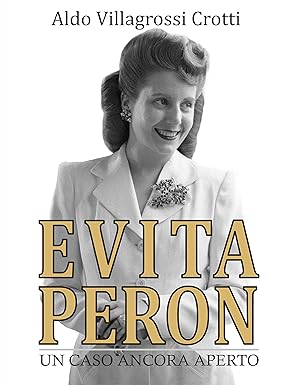 Aldo Villagrossi Crotti: È fondamentale. Se non ci fosse questo tipo di connessione non esisterebbe la letteratura, la poesia. A volte leggo autori o poeti freddi, o semplicemente falsi. Fingere un sentimento è relativamente facile per certa gente. Molta gente ama scrivere poesie, e molti di questi sono poeti sinceri, ma nella poesia ci si trova troppo spesso di fronte alla banalità o all’incomprensibile. In Italia abbiamo avuto una importantissima scuola che risale ai tempi antichi, forse la più importante al mondo. Abbiamo avuto centinaia di poeti straordinari per ogni secolo passato, poeti che sono arrivati fino ai giorni nostri e che ancora emozionano per la capacità di entrare in simbiosi con il lettore, basti pensare a Dante Alighieri. Questi erano coloro che avevano la fortuna di poter pubblicare le loro opere. Probabilmente ce ne siamo persi altrettanti che non hanno avuto la fortuna di poter farsi notare. Con internet ci si aspettava un fiorire di tutti i talenti letterari e poetici, ma la cosa sembra non essere avvenuta, anzi. Ci sono gruppi su Facebook dove partecipano più di 30.000 persone e dove non si riesce a trovare un nuovo Ungaretti o Quasimodo nemmeno a pagarli. La maggior parte delle poesie sono banali oppure sono lo scimmiottare in “difficilese” poeti di ben più alta levatura. Dunque, internet non ha risolto niente in termini di numero di poeti e letterati validi, ha solo aggiunto un certo numero di persone che scrivono e rimangono al livello più basso. Quelli che spiccano rimangono sempre e comunque un numero molto limitato, e sono sempre quelli che “attaccano la spina” con il lettore, per non staccarla più.
Aldo Villagrossi Crotti: È fondamentale. Se non ci fosse questo tipo di connessione non esisterebbe la letteratura, la poesia. A volte leggo autori o poeti freddi, o semplicemente falsi. Fingere un sentimento è relativamente facile per certa gente. Molta gente ama scrivere poesie, e molti di questi sono poeti sinceri, ma nella poesia ci si trova troppo spesso di fronte alla banalità o all’incomprensibile. In Italia abbiamo avuto una importantissima scuola che risale ai tempi antichi, forse la più importante al mondo. Abbiamo avuto centinaia di poeti straordinari per ogni secolo passato, poeti che sono arrivati fino ai giorni nostri e che ancora emozionano per la capacità di entrare in simbiosi con il lettore, basti pensare a Dante Alighieri. Questi erano coloro che avevano la fortuna di poter pubblicare le loro opere. Probabilmente ce ne siamo persi altrettanti che non hanno avuto la fortuna di poter farsi notare. Con internet ci si aspettava un fiorire di tutti i talenti letterari e poetici, ma la cosa sembra non essere avvenuta, anzi. Ci sono gruppi su Facebook dove partecipano più di 30.000 persone e dove non si riesce a trovare un nuovo Ungaretti o Quasimodo nemmeno a pagarli. La maggior parte delle poesie sono banali oppure sono lo scimmiottare in “difficilese” poeti di ben più alta levatura. Dunque, internet non ha risolto niente in termini di numero di poeti e letterati validi, ha solo aggiunto un certo numero di persone che scrivono e rimangono al livello più basso. Quelli che spiccano rimangono sempre e comunque un numero molto limitato, e sono sempre quelli che “attaccano la spina” con il lettore, per non staccarla più.
L’IDEA MAGAZINE: Il mondo di ognuno di noi – autori, scrittori e poeti inclusi e che probabilmente sono tra i più sensibili ed attenti osservatori della realtà che li circonda – viene arricchito dalle esperienze vissute e dalle conoscenze acquisite. Grazie al tuo lavoro secolare so che hai la possibilità di viaggiare molto anche all’estero.
Puoi farci qualche esempio di paradossi estremi in cui ti sei imbattuto, di situazioni inimmaginabili – positive o negative – di cui sei stato testimone e che rimarranno per sempre scolpite nella tua mente, ma anche e soprattutto nel tuo cuore?
Aldo Villagrossi Crotti: Wow… avrei bisogno di qualche Tb di spazio… diciamo che il giro del mondo l’ho fatto molte volte. Ho visto le condizioni in cui versano gli homeless di Manhattan e la incredibile ricchezza di certe famiglie di petrolieri africani. L’inutile ostentazione di Dubai contrapposta alla straordinaria e sorridente ospitalità del Bangladesh, nella sua semplicità. Tutto il mondo merita di essere scoperto. In ogni posto ho sempre cercato di tornare a casa con un libro in mano, un libro di poesia, scritto da un poeta locale. Dal Libano sono tornato con la raccolta completa delle opere di Kalil Gibran. In questo modo ho conosciuto autori straordinari come Mois Benarroch in Israele, Esteban Charpentier ed Hector Urruspuru in Argentina, Robert Max in Colombia, Craig Czury negli USA.
L’IDEA MAGAZINE: Aldo, secondo te, dove stanno andando il Mondo e l’Umanità? A volte c’è da preoccuparsi seriamente e da chiedersi se abbiamo davvero superato il punto di non ritorno…
Aldo Villagrossi Crotti: Non credo. Il punto di non ritorno è molto difficile da individuare. Forse lo abbiamo passato molto tempo fa e non ce ne siamo mai accorti. Forse siamo ancora distanti. L’importante è avere la consapevolezza di aver passato una soglia, e oggi siamo in molti ad avere questa sensazione, e la consapevolezza è il principio di tutte le svolte.
L’IDEA MAGAZINE: Il mondo della cultura a che punto è a tuo avviso? Pensi che le nuove tecnologie, i socials e quant’altro non era disponibile fino a 30-40 anni fa abbiano, in linea generale, incrementato solo la circolazione di informazioni o anche la cultura di per sé?
Aldo Villagrossi Crotti: Temo di aver già risposto a questa domanda poco sopra. Ad ogni modo: la circolazione delle informazioni è enormemente aumentata, mentre la capacità di interpretarle è rimasto esattamente allo stesso punto.
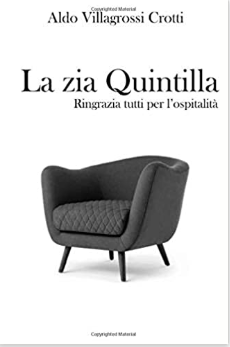 L’IDEA MAGAZINE: Siamo arrivati al 2020 e, Covid-19 a parte, ci hai sorpresi con la tua ultima ‘semplice’ – a tuo dire – ma altrettanto bella pubblicazione. Ho avuto il privilegio e la gioia di leggere questo tuo ultimo lavoro intitolato “La zia Quintilla”, che ho molto apprezzato e che consiglio vivamente.
L’IDEA MAGAZINE: Siamo arrivati al 2020 e, Covid-19 a parte, ci hai sorpresi con la tua ultima ‘semplice’ – a tuo dire – ma altrettanto bella pubblicazione. Ho avuto il privilegio e la gioia di leggere questo tuo ultimo lavoro intitolato “La zia Quintilla”, che ho molto apprezzato e che consiglio vivamente.
Senza rivelare troppi dettagli ai lettori, ce ne vuoi parlare?
Aldo Villagrossi Crotti: Erano anni che cercavo di scrivere un giallo che non fosse minimamente riconducibile ad un libro giallo canonico. Ho usato un contesto che nessuno ha mai usato per un libro giallo, ho usato dei personaggi assolutamente reali, ne ho descritto i relativi caratteri e le caratteristiche fisiche reali. Ho raccontato di me in un contesto reale, dei miei parenti, di una vita vissuta realmente, ma è un giallo, che si rivela solo alla fine. I primi sospetti arrivano a ¾ del libro, circa. Ma sono solo sospetti. E per giunta non è nemmeno un giallo.
Insomma, non so quanti libri ci siano in commercio al giorno d’oggi con gli stessi contenuti de “La zia Quintilla”. Non voglio peccare di immodestia, ma io di libri ne ho letti tanti e non ho mai trovato niente di simile. Dunque, scrivere La zia Quintilla è stato un gran piacere perché stavo scrivendo qualcosa di inedito e di surreale al tempo stesso.
L’IDEA MAGAZINE: Chi è La zia Quintilla?
Aldo Villagrossi Crotti: Quintilla è il surrogato di una sorella che non tornerà mai più. Quintilla è l’ombra di una donna passata dal tritacarne dei campi di concentramento. Quintilla è una sedia vuota, una voce registrata, una personalità aliena, il simbolo dell’accettazione. Non vedevo l’ora di scrivere questo libro, ma non riuscivo a trovare lo spunto giusto. La zia Quintilla è, in parte, quello che Primo Levi descrive ne “i sommersi e i salvati”. Già, Primo Levi, ancora lui. È un elemento ricorrente della mia esistenza. Levi fu l’unico in grado di raccontare la prigionia e lo sterminio con una visione critica dei fatti, quantomeno ne “I sommersi e i salvati”. Quel libro è il suo vero capolavoro, e io ho voluto omaggiarne i contenuti ne “La zia Quintilla”, seppur siano due libri estremamente diversi sia nei contenuti che nel contesto. La zia Quintilla è un romanzo, va letto così. Ci sono cose che accadono in una famiglia che vanno al di là della normalità. Quintilla è una di queste anomalie, una anomalia durata 40 anni.
L’IDEA MAGAZINE: Gli amici lettori che volessero acquistare questo tuo libro, altre tue pubblicazioni o contattarti in che modo potranno farlo?
Aldo Villagrossi Crotti: Per adesso “La zia Quintilla” è disponibile in italiano su www.amazon.it , fra poco lo sarà in lingua inglese sulle piattaforme Amazon anglofone, e so che lo stanno traducendo anche in spagnolo.
L’IDEA MAGAZINE: Grazie, Aldo per aver partecipato a questa intervista. È sempre un piacere ospitarti. Tanti auguri per tutte le tue pubblicazioni e soprattutto per La zia Quintilla. Che possa avere un grandissimo successo!
Aldo Villagrossi Crotti: Ancora una volta ringrazio te per l’attenzione in tutto quello che scrivo e faccio. È bello avere amici così attenti!
Interview by Maria Teresa De Donato
 Today, I am happy to welcome back my friend and colleague author Aldo Villagrossi Crotti, Writer and Poet, whom I had the honor of interviewing some time ago.
Today, I am happy to welcome back my friend and colleague author Aldo Villagrossi Crotti, Writer and Poet, whom I had the honor of interviewing some time ago.
Aldo is a cultured, outgoing, and multitalented person, engaged in various activities, not least cultural included, and who has a 360° view of the world and everything in it, as well as a depth of thought and a sharp sense of humor like few others.
As I mentioned in the past, Aldo reminds me—having known him and having read some of his writings—of Albert Einstein and Woody Allen, which is no small thing.
That being said, let’s see how many and what kind of surprises he has in store for us today.
L’IDEA MAGAZINE: Hi Aldo. I’m happy to have you here and thanks for taking the time also for this interview.
Aldo Villagrossi Crotti: Hi Teresa, thanks for giving me a second chance!
L’IDEA MAGAZINE: I named our previous interview “Listen to this River” after one of your works. Would you, please, summarize for our readers who might not have had the opportunity to read or remember that article, the publications you wrote until 2019, thus including titles, contents, and circumstances?
Aldo Villagrossi Crotti: Of course. I started with a youth publication in the early 90s. It was a collection of short stories and poems that I titled “Notes, for the note”. Printed on my own and in the most literal sense: I took advantage of a friend’s copier and another’s stapler and printed about 200 copies. I distributed them all during a collective art exhibition. I did not feel the need to publish a book, I did it because it seemed an original idea to me to combine short stories and poems in a self-produced booklet and distribute it as an artistic installation. This was quite successful, not because they were all distributed (they were free) but because I had interesting feedback. What surprised me most was that many of those who read my book managed to grasp the deeper meaning of what I had written. It scared me a little, I tell you the truth. I discovered that I was decodable. Even one of the poems I had written, a sort of cross-poem that crossed a text by Jimi Hendrix with my interpretation, was in my opinion rather hermetic, although pleasant in terms of metric. A guy came to compliment me on that poem, describing exactly the mood I was in when I wrote it. From that moment on I began to think that writing is a bit like handling a weapon: you must be careful. Setting aside my degree thesis and some technical publications, my editorial production, although I continued to write almost incessantly, suffered a pause of about 10 years.
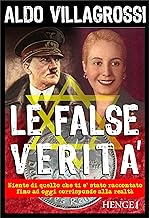 In December 2008, my father and I discovered that we had been unwittingly involved in a complicated international spy story in the early 1970s. The (challenging) reconstruction of that event resulted in two books, a first book published in 2012, “The False Truths” and a second book, much more detailed and full of documentary references, published in 2019 “Fifteen logical hypotheses on the Evita Peron case”. Immediately afterward, through a series of coincidences, I discovered a book that spoke of a story related to the deportation of a Jewish woman from the Sighet ghetto in the then-Romanian territory annexed to Hungary. This woman had met one of my uncles, and she devoted three pages to describing him. I decided to translate the three pages of the book and sent them to my father for confirmation. Eventually, I translated the whole book, and sent it to an important Italian publishing house, frankly without much hope that it could get published. They replied to me after a week with an email saying: “Beautiful. We are going to publish it.”
In December 2008, my father and I discovered that we had been unwittingly involved in a complicated international spy story in the early 1970s. The (challenging) reconstruction of that event resulted in two books, a first book published in 2012, “The False Truths” and a second book, much more detailed and full of documentary references, published in 2019 “Fifteen logical hypotheses on the Evita Peron case”. Immediately afterward, through a series of coincidences, I discovered a book that spoke of a story related to the deportation of a Jewish woman from the Sighet ghetto in the then-Romanian territory annexed to Hungary. This woman had met one of my uncles, and she devoted three pages to describing him. I decided to translate the three pages of the book and sent them to my father for confirmation. Eventually, I translated the whole book, and sent it to an important Italian publishing house, frankly without much hope that it could get published. They replied to me after a week with an email saying: “Beautiful. We are going to publish it.”
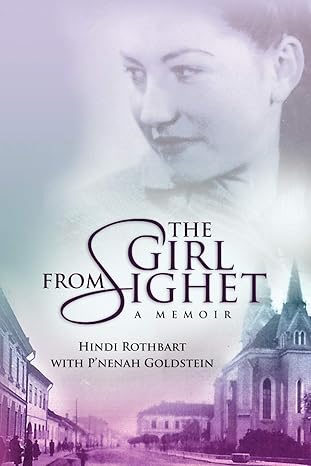 Thus, was born “The Girl from Sighet”, a book that in the USA went undeservedly unnoticed, but that in Italy in 2013 earned the title of “The Memorial Day Book”. A great satisfaction. In the meantime, I had filled the drawer with my poems. As often happens, when you re-read what you have written, you throw 90% of it. So, I did, but the remaining 10% was so interesting that I decided to share it with some friends belonging to the American and South American poetic circle. The thing was appreciated (always leaving me in a state of radical amazement) to the point that I was asked to participate in what is today “The poetic encyclopedia of the five continents”, initially published in Colombia and Argentina and present today pretty much worldwide. The first edition was called “Oir Ese Rio,” that is, “Listen to this river,” and it had a specific function, which was to sensitize, through poetry, the peoples of the world towards the pollution of river courses.
Thus, was born “The Girl from Sighet”, a book that in the USA went undeservedly unnoticed, but that in Italy in 2013 earned the title of “The Memorial Day Book”. A great satisfaction. In the meantime, I had filled the drawer with my poems. As often happens, when you re-read what you have written, you throw 90% of it. So, I did, but the remaining 10% was so interesting that I decided to share it with some friends belonging to the American and South American poetic circle. The thing was appreciated (always leaving me in a state of radical amazement) to the point that I was asked to participate in what is today “The poetic encyclopedia of the five continents”, initially published in Colombia and Argentina and present today pretty much worldwide. The first edition was called “Oir Ese Rio,” that is, “Listen to this river,” and it had a specific function, which was to sensitize, through poetry, the peoples of the world towards the pollution of river courses.
 Oir Ese Rio went out to bookstores, and a few months later I received a contact request on Facebook from a person residing in Colombia. I thought of a mistake, but I accepted it, nonetheless. A few hours later this person sent me a movie where a Colombian high school student read my poem, the one published in “Oir Ese Rio”. Then other contacts came one after the other. From Colombia, Venezuela, Argentina, Chile, and so on. People who had bought the book and read my poem. They liked it to the point that they wanted to know more about me. They were looking forward to meeting me. I knew that poetry in those latitudes is much more important than it is in our country. They started asking me for more poems, and it was starting to be a constant in my life. Last year, the request to participate in the second edition of the Poetic Encyclopedia of the Five Continents arrived, this time it would be dedicated to the vegetation, “Arbolarium”. This time the publisher asked me something a little more substantial: he didn’t want me to write just a poem, but rather the preface of the volume. We are currently preparing the third volume of the Encyclopedia, this time entirely dedicated to the Wind. As a reminder: all proceeds from the sale of this encyclopedia were donated to the “Pibes” association, an Argentine foundation that creates works related to the improvement of the living conditions of children of indie populations in the rainforest in northern Argentina.
Oir Ese Rio went out to bookstores, and a few months later I received a contact request on Facebook from a person residing in Colombia. I thought of a mistake, but I accepted it, nonetheless. A few hours later this person sent me a movie where a Colombian high school student read my poem, the one published in “Oir Ese Rio”. Then other contacts came one after the other. From Colombia, Venezuela, Argentina, Chile, and so on. People who had bought the book and read my poem. They liked it to the point that they wanted to know more about me. They were looking forward to meeting me. I knew that poetry in those latitudes is much more important than it is in our country. They started asking me for more poems, and it was starting to be a constant in my life. Last year, the request to participate in the second edition of the Poetic Encyclopedia of the Five Continents arrived, this time it would be dedicated to the vegetation, “Arbolarium”. This time the publisher asked me something a little more substantial: he didn’t want me to write just a poem, but rather the preface of the volume. We are currently preparing the third volume of the Encyclopedia, this time entirely dedicated to the Wind. As a reminder: all proceeds from the sale of this encyclopedia were donated to the “Pibes” association, an Argentine foundation that creates works related to the improvement of the living conditions of children of indie populations in the rainforest in northern Argentina.
L’IDEA MAGAZINE: Congratulations! I remember that in 2019 you also participated in some radio broadcasting transmitted by an Argentine station.
Would you like to tell us about your experience?
Aldo Villagrossi Crotti: The publisher of the Poetic Encyclopedia of the Five Continents, the Argentine poet Esteban Charpentier, for more than 20 years has been conducting a radio broadcast entirely dedicated to poetry, the “Denserio” broadcast. Inevitably I was involved in one of these broadcasts, initially as an occasional guest and then as an almost regular one.
L’IDEA MAGAZINE: In our previous interview, some interesting aspects emerged which, due to time and space limits, we were able only to scratch the surface of. On this occasion, however, I would like to deepen those topics. I wish to start with your statement when speaking of art as a “free expression”, but also as a “manifestation of a social and political commitment” and “therapeutic methodology, as a tool of self-knowledge, self-analysis and self-criticism”, you said you are extremely critical of yourself but have a tendency to justify the rest of the world and forgive it. Hitler included, should he come back to life and meet you.
Many people who suffered unspeakable trials and who directly or indirectly witnessed atrocities such as those carried out in concentration camps are likely to have serious difficulties not only in “justifying” such actions but even more so in “forgiving” the masterminds behind them.
Could you elaborate on your answer by explaining if, in your case, you believe it is a matter of unconditional love, empathy, or something else, or what other explanation you give for your tendency?
 Aldo Villagrossi Crotti: I deeply believe in the evolution of human beings. Change is inevitable, but change can also be for the better, and often it is. A life spent in righteousness and perfection is inevitably boring. Some people are radically evil, this is a fact. Among these, there is someone who manages to realize their wickedness even at extremely high levels, and the damage is incalculable. What sustains them, however, is rarely their wickedness. The “specter head” style figures are almost cinematographic, literary figures. The wicked powerful are always supported by the profiteers, the opportunists, and by a mass of supporters who believe they can take personal advantage of it. All this generates a dictatorship, a military regime, and a slave factory. These characters spend their whole life without ever confronting anyone who can make them think about their badness, often losing their sensitivity until they are completely deprived of it. Hitler’s figure is an almost glaring example. His determination to exterminate the European Jewish people was his only reason for living. He supported his reasons based on a series of fake news that still circulates incredibly unchanged after so many years. He knew that racial hatred would unite the peoples of Europe, and he used propaganda to foment something that had already been in European DNA for many centuries. Diversity frightens. Nazism was only a trigger, hatred was deeply rooted and waited to come out with an excuse. The extermination was there for all to see, and all were silent witnesses in those nations involved. So everyone was complicit. After the war, everything was smoothed out and everyone was “forgiven”, especially the nations that made themselves protagonists of the most aberrant facts. Responsibilities must be distributed, but the same must be true of forgiveness. The moment someone retraces his steps, as has happened in the past, it is necessary to understand all the reasons and try to improve together. I know, it is a very Christian message. I believe this is one of the many gospel messages, the resurrection seen from a different perspective.
Aldo Villagrossi Crotti: I deeply believe in the evolution of human beings. Change is inevitable, but change can also be for the better, and often it is. A life spent in righteousness and perfection is inevitably boring. Some people are radically evil, this is a fact. Among these, there is someone who manages to realize their wickedness even at extremely high levels, and the damage is incalculable. What sustains them, however, is rarely their wickedness. The “specter head” style figures are almost cinematographic, literary figures. The wicked powerful are always supported by the profiteers, the opportunists, and by a mass of supporters who believe they can take personal advantage of it. All this generates a dictatorship, a military regime, and a slave factory. These characters spend their whole life without ever confronting anyone who can make them think about their badness, often losing their sensitivity until they are completely deprived of it. Hitler’s figure is an almost glaring example. His determination to exterminate the European Jewish people was his only reason for living. He supported his reasons based on a series of fake news that still circulates incredibly unchanged after so many years. He knew that racial hatred would unite the peoples of Europe, and he used propaganda to foment something that had already been in European DNA for many centuries. Diversity frightens. Nazism was only a trigger, hatred was deeply rooted and waited to come out with an excuse. The extermination was there for all to see, and all were silent witnesses in those nations involved. So everyone was complicit. After the war, everything was smoothed out and everyone was “forgiven”, especially the nations that made themselves protagonists of the most aberrant facts. Responsibilities must be distributed, but the same must be true of forgiveness. The moment someone retraces his steps, as has happened in the past, it is necessary to understand all the reasons and try to improve together. I know, it is a very Christian message. I believe this is one of the many gospel messages, the resurrection seen from a different perspective.
L’IDEA MAGAZINE: Another aspect that emerged in our previous meeting, and which in my opinion deserves to be deepened, concerns the relationship that develops between writer and reader and that sometimes, even if there is no physical contact between the two – who maybe never get to know each other – it causes a sort of Universal Love to be born, a union of souls, a phenomenon that, from your point of view, is easier to happen with poetry than with other literary forms. In mentioning this aspect, you even referred to two types of ‘intimacy’, objective and subjective.
Would you like to elaborate on this thought, perhaps by giving us some examples?
 Aldo Villagrossi Crotti: It is fundamental. If there were no such connection, literature and poetry would not exist. Sometimes, I read authors or cold poets, or simply fakes. Faking a feeling is relatively easy for some people. Many people love to write poetry, and many are honest poets, but in poetry, we are too often faced with banality or the incomprehensible. In Italy, we had a significant school that dates back to ancient times, perhaps the most important in the world. We have had hundreds of extraordinary poets for each past century, poets who have come down to the present day and who are still thrilled by the ability to enter into symbiosis with the reader; think of Dante Alighieri. These were those who were fortunate enough to be able to publish their works. We likely missed many who haven’t been noticed. All the literary and poetic talents were expected to flourish with the internet, but that did not seem to have happened. There are groups on Facebook where more than 30,000 people participate and where there is no way you can find a new Ungaretti or Quasimodo, not even close. Most of the poems are banal, or they are the ape in “difficulty” poems of much higher caliber. Therefore, the internet has not solved anything regarding the number of outstanding poets and writers; it has only added a certain number of people who write and remain at the lowest level. Those that stand out are always, and in any case, a minimal number, and they are always those who “plug in” with the reader, never to disconnect from them again.
Aldo Villagrossi Crotti: It is fundamental. If there were no such connection, literature and poetry would not exist. Sometimes, I read authors or cold poets, or simply fakes. Faking a feeling is relatively easy for some people. Many people love to write poetry, and many are honest poets, but in poetry, we are too often faced with banality or the incomprehensible. In Italy, we had a significant school that dates back to ancient times, perhaps the most important in the world. We have had hundreds of extraordinary poets for each past century, poets who have come down to the present day and who are still thrilled by the ability to enter into symbiosis with the reader; think of Dante Alighieri. These were those who were fortunate enough to be able to publish their works. We likely missed many who haven’t been noticed. All the literary and poetic talents were expected to flourish with the internet, but that did not seem to have happened. There are groups on Facebook where more than 30,000 people participate and where there is no way you can find a new Ungaretti or Quasimodo, not even close. Most of the poems are banal, or they are the ape in “difficulty” poems of much higher caliber. Therefore, the internet has not solved anything regarding the number of outstanding poets and writers; it has only added a certain number of people who write and remain at the lowest level. Those that stand out are always, and in any case, a minimal number, and they are always those who “plug in” with the reader, never to disconnect from them again.
L’IDEA MAGAZINE: The world of each of us – authors, writers, and poets included and who are probably among the most sensitive and attentive observers of the reality around us – is enriched by lived experiences and acquired knowledge. Thanks to your secular work, I know that you have the opportunity to travel a lot abroad too.
Can you give us some examples of extreme paradoxes you have encountered, of unimaginable situations—positive or negative—that you have witnessed and will remain forever carved in your mind, but also, and above all, in your heart?
Aldo Villagrossi Crotti: Wow … I need some TB of space … let us say that I have traveled around the world many times. I have seen the conditions homeless people in Manhattan are facing and the incredible wealth of certain families of African oilmen. Dubai’s useless ostentation is opposed to Bangladesh’s extraordinary and smiling hospitality in its simplicity. The whole world deserves to be discovered. In every place, I have always tried to come back home with a book in hand, a book of poetry written by a local poet. From Lebanon, I returned with the complete collection of Kalil Gibran’s works. In this way, I met extraordinary authors such as Mois Benarroch in Israel, Esteban Charpentier and Hector Urruspuru in Argentina, Robert Max in Colombia, and Craig Czury in the USA.
L’IDEA MAGAZINE: Aldo, in your opinion, where are the world and humanity heading? Sometimes, it looks like we should seriously be worrying and wondering if we have already passed the point of no return …
Aldo Villagrossi Crotti: I do not think so. The point of no return is extremely difficult to locate. Maybe we passed it a long time ago and we never noticed it. Maybe we are still far away from it. The important thing is that we are aware we have crossed a threshold; today many of us do have this feeling and being aware is the start of all the turning points.
L’IDEA MAGAZINE: What stage do you think the world of culture is right now? Do you believe that new technologies, socials, and whatever else that was not available until 30-40 years ago, in general, might have only increased the circulation of information or even the culture per se?
Aldo Villagrossi Crotti: I believe I might have already answered this question. However: the circulation of information has greatly increased, while the ability to interpret it has remained at the same point.
L’IDEA MAGAZINE: We reached the year 2020 and, Covid-19 aside, you surprised us with your latest ‘simple’ – as you put it – but equally beautiful publication. I had the privilege and the joy of reading your latest work entitled Aunt Quintilla, which I highly appreciated and recommend.
Without revealing too many details to our readers, can you tell us about it?
Aldo Villagrossi Crotti: I had been trying for years to write a mystery that was not in the least attributable to a canonical yellow book. I used a context that nobody has ever used for a detective book, I used real characters, and I described their personalities and real physical features. I told about myself in a real context, about my relatives, about a life lived, but it is a mystery, which is revealed only at the end. The first suspicions reach ¾ of the book, approximately. But they are only suspicious. And besides, it is not even a detective story. In short, I do not know how many books are on the market today with the same contents as “Aunt Quintilla”. I do not want to sound presumptuous, but I have read many books and never found anything like it. So, writing Aunt Quintilla was a great pleasure because I was writing something new and surreal at the same time.
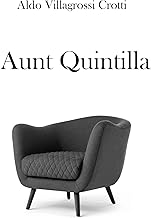 L’IDEA MAGAZINE: Who is Aunt Quintilla?
L’IDEA MAGAZINE: Who is Aunt Quintilla?
Aldo Villagrossi Crotti: Quintilla is the surrogate for a sister who will never return. Quintilla is the shadow of a woman who passed by the meat grinder in the concentration camps. Quintilla is an empty chair, a recorded voice, an alien personality, and the symbol of acceptance. I was looking forward to writing this book, but I could not find the right idea. Aunt Quintilla is, in part, what Primo Levi describes in “The Submerged and the Saved”. Yes, Primo Levi, still him. It is a recurring element of my existence. Levi was the only one able to recount imprisonment and extermination with a critical vision of the facts, at least in “The Submerged and the Saved”. That book is his true masterpiece, and I wanted to pay homage to its contents in “Aunt Quintilla”, although they are two extremely different books both in content and context. Aunt Quintilla is a novel, it should be read like this. Some things happen in a family that go beyond normal. Quintilla is one of these anomalies, an anomaly that lasted 40 years.
L’IDEA MAGAZINE: What if our reader friends wished to buy this book, or other publications of yours, or contact you, how could they do so?
Aldo Villagrossi Crotti: For now, “Aunt Quintilla” is available in Italian on www.amazon.it; it is now in English on the English-speaking Amazon platforms, and I know they are also translating it into Spanish.
L’IDEA MAGAZINE: Thanks, Aldo, for participating in this interview. It is always a pleasure to have you as my guest. Best wishes to all your publications, especially for Aunt Quintilla. May it be a huge success!
Aldo Villagrossi Crotti: Once again, thank you for your attention to everything I write and do. It is nice to have such attentive friends!


